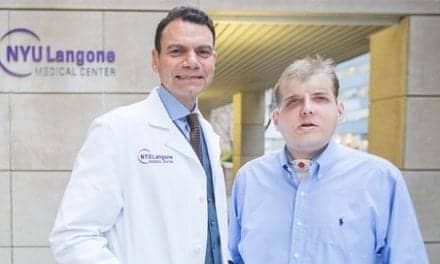March 30, 2007
People with multiple sclerosis need much more practical help and better care support, according to a study published in the latest Journal of Advanced Nursing.
Researchers from King’s College London explored the aspirations of 445 patients with different levels of multiple sclerosis (MS), who were taking part in a wider study to evaluate MS specialist nurses.
They believe that their findings could form the basis for developing an MS satisfaction tool, which could be used to assess quality of care in services.
The tool could also identify the gaps in provision that still exist despite the MS guidelines issued by the National Institute for Health and Clinical Excellence, which advises the UK Government on health issues.
29 per cent of those who took part in the survey said that medical treatment was their number one priority when it came to meeting their current needs, but 19 per cent specified socio-economic support, with 67 per cent of those specifying household adaptations, better transport provision and re-housing.
The need for help with financial and employment problems was also identified.
A further 18 percent pointed to the need for enhanced care provision, including improvements in the availability, accessibility and continuity of health and social care provision.
Respondents felt health care professionals needed greater knowledge about MS and how to manage it and wanted better co-ordinated services with one central point of contact. They also felt that specialist MS nurses had an important role to play.
Nine percent of respondents wanted more information about MS treatments and services and some felt that families and society needed to improve their understanding of MS and how it affects people.
Seven percent wanted better access to rehabilitation therapies, notably physiotherapy. Occupational therapy and rehabilitation therapies were also mentioned.
Six percent wanted non-professional care – including support with personal, home and child care – and a further three per cent needed help with psychological issues.
"The aim of the study was to identify what people with MS needed most and to compare the responses between people with different levels of MS" explains lead researcher Dr Angus Forbes.
"People with minimal levels of MS rated medical treatment as their highest priority, followed by enhanced care, as did people with severe MS.
"Patients with mild MS also rated medical care first, with socio-environmental help and enhanced care in joint second place. But people with moderate MS, rated medical care in second place behind socio-environmental help."
The 714 people taking part in the wider MS study were recruited from seven neurological centres across five English regions.
435 responded to the question "What one thing would be most helpful in meeting your current needs" in the first questionnaire and 424 responded to the question in the second survey a year later. 270 people answered the question on both occasions.
The average age of the respondents was just over 48 and 69 percent were female. Average time since diagnosis was just over 11 years and 83 percent of respondents lived with others.
60 percent had progressive MS, 29 percent had relapse-remitting MS. Other forms of MS accounted for 11 percent of the sample.
More than one in three had moderate MS (35 percent), followed by severe (28 percent), mild (20 percent) and minimal (17 percent).
"Since our research was carried out, the UK’s National Institute for Health and Clinical Excellence has produced MS care guidelines which seem to echo the aspirations expressed by the MS patients who took part in our study. But a 2006 study suggested that little had changed, with few health authorities implementing the guidelines" says Dr Forbes.
"Such deficits are not confined to the UK and have been reported in wider surveys across Europe."
"Our survey, which was funded by the MS Society for Great Britain, shows very clearly that people’s needs change as their MS develops.
"Developing a needs assessment tool specifically for MS would be an important first step in ensuring that healthcare meets those individual and changing needs, as it would show how well care is currently being provided, identify gaps in provision and point to areas for future research."
Source: EurekaAlert!




